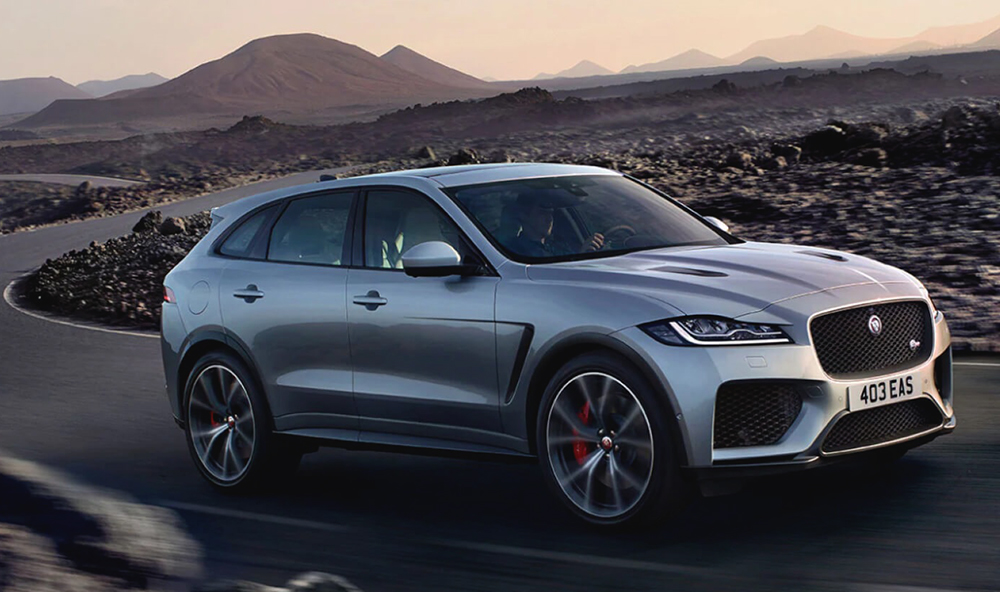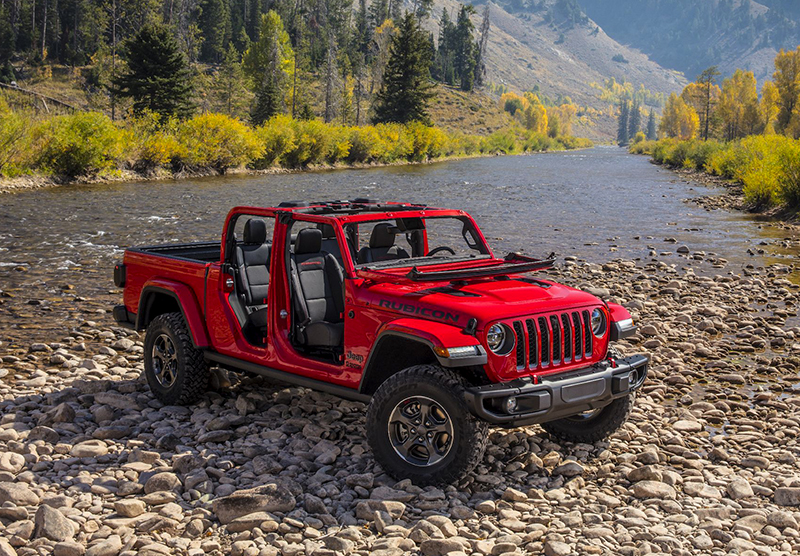In a previous article, we shared with you 15 of the most reliable car brands out there. We based that reliability ranking on a mixture of data from Consumer Reports, RepairPal and our own estimation. As you might expect, today we’ll be exploring the other end of the spectrum to find out what are, generally, the least reliable car brands available on the market today.
What Makes a Car Brand Unreliable?
This is essentially a question of thinking of the diametric opposite things to what makes a car reliable. While Consumer Reports ratings are typically based on several factors — of which reliability is one — RepairPal is more focused on three critical factors looking exclusively at reliability.
- Average annual repair cost – a dollar amount you’d typically spend per year keeping your car in order.
- Average frequency of visits to the auto shop – a number showing how many times per year the car has to be taken to the mechanic.
- Average percentage of repairs that will be for a serious problem – shows the proportion of repairs that will be considered “severe,” and therefore more problematic and expensive to fix.
The higher these numbers, the worse the situation is. Using these numbers while guided by what publications like Consumer Reports are saying, we have prepared a list of 8 car brands that fall short of the threshold needed to be deemed a truly “reliable” auto name.
Volvo
This one has to be one of the most surprising for many readers. Volvo has carved out such a stellar reputation for safety and good looks over the years, that it’s almost impossible to believe you might find it among a list of least reliable car brands.
First, when look at the RepairPal data, we see a startling picture of expensive and frequent repairs needed for Volvo cars. Although on average the nature of repairs in a Volvo is less likely to be deemed serious, average annual repair costs total $769, which is a lot when you consider Volvos are expensive to buy as a “premium” auto. Furthermore, they require visits to the shop 0.54 times per year.
Common problems in Volvo cars include transmission problems. The V70 in particular experienced this problem over its 20-year tenure among the Volvo line. There have also been issues with other models: power steering leaks in the S60; water-logged fuse box in the 240, and cooling fan failure in the XC60. Even the newer XC90 was complained about for excessive engine noise in the cabin.
Volvo’s range is fairly broad, however, and there are some models which overall have scored well on RepairPal. The highest-rated individual model is the XC60, with 4 stars on RepairPal. Consumer Reports gave the Volvo brand a rather lackluster score of 67 in their overall rankings, placing them 22nd ahead of Ford. Perhaps it was reliability issues that let them down.
Fiat
Coming in just behind Volvo in RepairPal’s own rankings was the Italian Fiat brand. Flagship hatchback model, the Fiat 500, has been dogged by issues such as power steering loss, constant lighting up of the oil warning light, oil smells in the cabin, window washer failure and more.
In the 2020 Consumer Reports list, Fiat came a very disappointing 33rd, scoring only 43 points overall, and with none of their cars receiving a coveted recommendation from the platform. This is something of a blow to such an established global brand. The outlook on RepairPal wasn’t much better, either. While frequency of visits to the shop was not bad at only 0.23 times per year, annual repair costs stood at $538, which while still below average seems a little high for a brand relying so heavily on its smaller car sales.
The real kick in the backside for Fiat was the data on repair severity. While Fiat cars don’t require many annual visits to the mechanic, when they do it’s usually a real doozy. An average of 17 percent of Fiat repairs are for something considered to be severe, which is 5 percent above the overall average of just 12 percent.
Chevrolet
Chevy has taken its fair share of knocks over the years over reliability. While we still can’t resist their Camaros and Silverado trucks, we also can’t stop finding at least some minor problems with them when it comes to reliability. Let’s use the Silverado truck as an example.
The 2019 model was very problematic, with complaints about the electrical system, steering, transmission, brakes and ESC system. It’s very hard to find love for a truck you’re driving if you’re also getting a load of difficulty from such critical elements within the vehicle. The brakes, for example, were strongly criticized in a 2019 report from the NHTSA, in which the reporter claimed that “while attempting to come to a stop at an intersection, the brake pedal became very spongy and I rolled into the intersection before I was able to fully compress the pedal almost to the floor.”
The RepairPal data doesn’t make for much better reading, either. Frequency of shop visits is sitting pretty at 0.28 times per year (0.12 below the average of 0.3 times), but with $649 a year on average spent on repairs and a 15 percent chance of your repairs being considered “severe,” it doesn’t do much for the reliability image.
Ram
Fans of the iconic all-American truck brand will likely scoff at Ram’s placement in our list of least reliable brands. As awesome-looking as a Ram 1500 pickup truck is, however, we cannot avoid the simple fact that they have been known to experience issues, even in the last decade as engineers have undoubtedly been working to solve these problems.
Electrical issues have always been a burden for drivers, as have coolant leaks, engine and transmissions issues, and even failure of the cam and lifter. The 2019-2020 model year Rams have shown significant improvement in transmission issues, but it’s too short-term to redeem the brand fully from its failings.
According to RepairPal, Ram was rated as 3 stars for reliability, which is average. Out of 32 brands they have rated in 2020, though, it only places Ram at the number 23 spot. That’s disappointing for such an iconic brand that has invested heavily in making improvements to their trucks to compete with the increasing number of brands in the space.
RepairPal data reveals that in two of the three metrics, Ram doesn’t show great reliability. Firstly, the repair costs are way above average at $858 annually, and among those repairs, 15 percent (3 percent above average) are considered severe. The one silver lining is that, apparently, the Ram won’t need those repairs all too often because it only needs 0.26 trips to the shop each year.
Cadillac
When for many years before now expressions like “The ‘Cadillac’ of _____” has been used to refer to the best of something, it may feel wrong to see the name Cadillac in this list. Their RepairPal ratings tell a different story. They were ranked a pretty poor 26th out of 32 brands analyzed in 2020, with $783 annual repair costs, 0.38 visits to the shop, and a huge 17 percent of repairs being considered severe. These are definitely less than pleasing scores.
The brand hasn’t fared much better in the Consumer Reports ratings, either, placing a disappointing 29th with an overall score of just 57. What is it that is letting this prestige American brand down?
According to reports from 2019, it seems that heavy redesigns have been behind some of the more recent woes experienced by Cadillac drivers. Taking a new direction in design, and loading the car up with electronics and new devices can have a marked impact upon reliability. One reason that brands like Toyota and Honda perform well is that they take existing technology and simply try to build on it over time, rather than throwing out one design and starting all over.
Alfa Romeo
This entry is somewhat unique because it doesn’t feature in the RepairPal ratings. It was, however, ranked 27th with a score of just 59 in the Consumer Reports list, with neither of their two models reviewed by CR getting a recommendation.
While RepairPal doesn’t have data on the Alfa Romeo, the UK Reliability Index does, and they just so happen to use a very similar set of criteria — factors of a repair, cost of parts and frequency of failures. In the UKRI, the lower your index number the better. An average across all cars is a score of 100. The UK national average is about 118. Alfa Romeo’s score? 214.
Alfa Romeo has become a victim of its previous model years. While several models in the range drag the reliability ratings way down, newer items like the Giulietta are scoring much better — around 78 on the UKRI. While they are clearly taking steps to improve their reliability problems, they have a long way to go to catch up to, say, Honda, whose UKRI for their Accord is a rather fantastic 28.
UKRI reported that the main issues lie in the Alfa’s axle and suspension. Apparently 1 in 4 of all faults lies in this area. The second-biggest problem was electrical faults, which account for almost 1 in 5 of all problems. Let’s hope the brand continues their hard work to improve future models so that one day soon they can end up in our Top 15 list. On the other hand, maybe they won’t…
https://youtu.be/Fg1zVKjvg74
GMC
Consumer Reports were rather unkind to yet another iconic American brand, GMC. This is the company that brought you’re the Hummer, the Envoy, the Sierra and many more. It’s also promising a new all-electric Hummer this year with incredible innovation like its diagonal-moving crab mode. Nonetheless, CR have rewarded GMC with a paltry 59 points, and a non-recommendation of a total of 6 models tested.
On RepairPal GMC achieved 3 stars, which while average only managed to place them 22nd out of 32 brands in the lineup. Like some of the other brands in this list, it seems that the cost and severity of potential reliability problems is what justifies its lower rank. Your GMC, according to RepairPal only needs to visit the shop 0.28 times per year, well below the average of 0.4 times. On the other hand, average annual repairs cost $744, and 17 percent of problems you encounter will be severe – that’s 1 in every 6.
Models like the GMC Terrain and the GMC Canyon have given the company the most headaches in reliability over the years. Since it joined the range in 2010, two huge complaints dogged the brand consistently from customers — oil consumption and transmission failure. The oil consumption problem, for instance, was found to be caused by a faulty piston where it was burning through a whole quart of oil every 1,000 miles. When left unattended, as many were, that leads to some serious engine problems not far down the line.
Jaguar
It’s known as a prestige brand, but Jaguar managed to score rather dismally in the RepairPal ratings at just 2.5 stars. The main issue behind the lack of reliability prowess is the extraordinarily high average annual repair cost of $1,123, as well as the need for shop visit 0.62 times each year. That makes it a pretty expensive car to run and maintain, even for those who can otherwise afford the purchase.
The new Jaguar XF scores somewhat better in the individual rankings at 3 stars, and the 2021 Jaguar XF is promising to make the brand more affordable than ever. It will be hard for Jaguar to work their way up, however, especially when you couple this data with a very poor 28th placement and a score of just 57 for Jaguar from Consumer Reports.
It seems that overall, Jaguar may be able to fix this problem with time. Their current standing may be the result of the negative impact of past models, but as their newer cars proliferate and are shown to be more reliable, they should hope to climb the ladder to reclaim what they undoubtedly feel is their rightful place at the top of the pecking order. As for the problem of expensive repairs, however, that may be hard to change on such a prestige model.
Names to Watch, But Not to Avoid
It’s crucial that buyers and drivers remember that reliability ratings can change very quickly. In our previous articles on reliable brands, many were featured that only a handful of years before would have found a comfortable home in the list featured in this article. Even big futuristic brands like Tesla have been experiencing fluctuations in reliability ratings, once even losing a prestigious recommendation from Consumer Reports over problems with their Model 3 sedan.
The point is that automakers are resilient and adaptive. They can take the hit of a car problem, even something serious like a major recall or a major scandal like that endured by Volkswagen over emissions. They can survive such tumult if they redouble their efforts to find solutions to whatever is ailing their automotive creations. It remains essential, therefore, that buyers do their homework and test drive cars they wish to buy. We can’t stress enough the need to spend time behind the wheel of a new car and experience any potential problems first-hand. Don’t forget to also read user reviews of each brand to see what real owners are saying after having had the car for a period of time.



